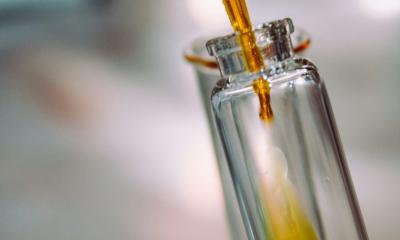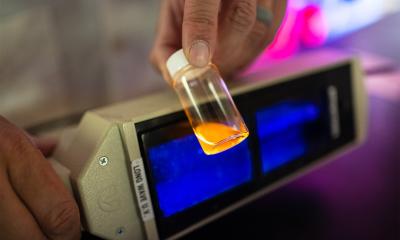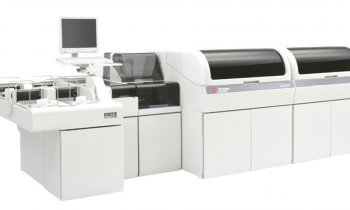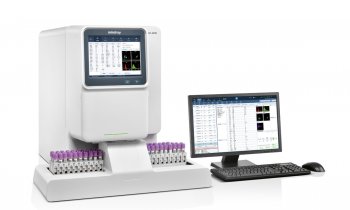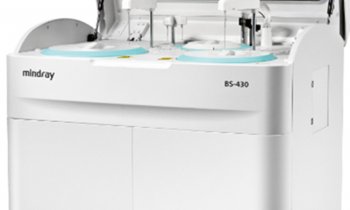Infection control
From alcohol to cancer detection
Clinical trials are under way at two NHS hospitals in England to assess breathalyser technology to detect lung cancer. Phase I clinical trials of a diagnostic breathalyser developed by Cambridge-based Owlstone Ltd have shown accurate identification of 12 lung cancer biomarkers in breath specimens. A Phase II trial is now targeting development of a small, handheld device that can be used in GP surgeries, clinics and the hospital bedside.
Report: Mark Nicholls

The latest trials are under way at University Hospitals of Leicester and Cambridge’s Papworth Hospital on the nanotechnology device that employs Field Asymmetric Ion Mobility Spectrometry (FAIMS) to detect chemicals at the very low quantities found in breath. Originally invented to detect explosives in airports, the technology has now been developed for medical use. Data from Cancer research UK shows that lung cancer survival is 75% in Stage 1 patients but only 5% in Stage 4 patients.
A goal of this project is to detect lung cancer earlier and save 10,000 lives by 2020 and £254 million in NHS healthcare costs. Billy Boyle, co-founder and President of Operations at Owlstone Ltd, said: ‘If you could change only one thing in the fight against cancer, it would be to detect the disease earlier, where existing treatments are already proven to save lives. FAIMS technology has the potential to bring a quick and easy-to-use breath test to the GP’s office. ‘The human body makes chemicals: a lot of them are just normal, everyday chemicals, but with cancer and other diseases the cells start to make chemicals differently. By programming the chips in software to look for these different characteristic signatures and chemical markers, you can programme it to look for a range of different diseases.’ Breath test technology is a growing area and has the advantage of being convenient and non-invasive, avoiding the cost and discomfort of biopsies.
Dr Salman Siddiqui, a clinical senior lecturer and adult chest physician at the University of Leicester and Glenfield Hospital lead the Leicester study; trial results are expected in early 2016. ‘This project will seek to identify and evaluate biomarkers in order to improve the accuracy and reliability of breath diagnostic methods,’ Siddiqui explained. ‘We will also be aiming to establish FAIMS as a faster, less expensive and more portable alternative to gas chromatography-mass spectrometry (GC-MS) for breath diagnosis applications.’
In a separate breakthrough, researchers in Israel are using nano-array analysis to identify key volatile organic compounds, which could be used to screen for early detection of stomach cancer. The technology senses minute changes in the levels of particular compounds in exhaled breath and accurately identifies high-risk changes that herald the development of stomach cancer.
The research, led by Professor Hossam Haick from the Department of Chemical Engineering and Russell Berrie Nanotechnology Institute in Haifa, also suggests that the technology could be used not only to test for the presence of stomach cancer, but also to monitor those at high risk of subsequently developing the disease. Gastric cancer develops in a series of well-defined steps, but there is currently no effective, reliable, and non-invasive screening test for picking up these changes early on.
Nano-array analysis is accurate, highly sensitive and cost-effective and its ability to accurately differentiate between low and high-risk changes would avoid unnecessary endoscopies and enable any progression to cancer or signs of disease recurrence to be monitored. A large trial, involving thousands of patients, is now underway in Europe to test the technology’s suitability as a screening method.
22.06.2015




